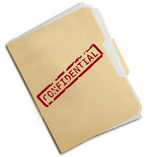Correct consultation procedures
 The underlying purpose of a European works council is to exercise influence on the strategic decisions of central management. In most cases under the old legal status, EWC meetings were merely a sort of "song-and-dance act". The EWC Directive from 2009 defines an in-depth consultation procedure according to the French model. As motherland of the consultation model, France actually provided the blueprint for the EWC Directive. → Key points of the French consultation model
The underlying purpose of a European works council is to exercise influence on the strategic decisions of central management. In most cases under the old legal status, EWC meetings were merely a sort of "song-and-dance act". The EWC Directive from 2009 defines an in-depth consultation procedure according to the French model. As motherland of the consultation model, France actually provided the blueprint for the EWC Directive. → Key points of the French consultation model
The fundamental principles that have to be observed and how long the procedure lasts in practice, can be better appreciated seen through the eyes of the French. More and more European works councils based outside of France, are tailoring their consultation procedures in an in-depth manner according to the French model. → The flow of a consultation procedure à la française
What are the key issues during the consultation procedure?
Since the European works council has no right to codetermination, it can only play its role prior to the final adoption of an opinion. The employer is obliged to wait for this opinion, otherwise it would be breaking the law.
The EWC can have management figures analyzed by its own experts and examine them critically. The termination of the information phase and hence the start of the consultation phase should only be envisaged once all information is available, "to undertake an in-depth assessment of the possible impact and, where appropriate, prepare for consultations" (article 2 f of the new EU Directive). In consequence, if central management holds back information, the whole procedure is automatically extended.
Elaboration of alternatives to restructuring plans
Once the consultation phase has begun, it can be fully used to confront central management with a wide-range of detailed suggestions from the employee representatives. Working groups can be useful for dealing with economic calculations. It may also be useful to develop alternative restructuring plans with the support of experts. As long as an official opinion has not been adopted, the employer must continue to address these proposals. If it needs more time to calculate and counter-act the proposals, the whole procedure is extended.
How long does a consultation procedure last?
The legislator speaks of an "reasonable" period of time and does not fix exact deadlines. If the employer wants to implement decisions rapidly, it makes sense to involve EWC members upfront in the planning phase and to give them not only the role of accomplice or observer but to consider them as a partner of European corporate governance. Herein lies the real key to understanding the concept of consultation.
A procedural irregularity in the consultation procedure can prove expensive
The implementation of any measures (e.g. layoffs) before the EWC has rendered its official opinion constitutes a breach of law. Over the past years there have been legal proceedings on this issue in several countries. The picture is however, far from consistent. → Examples of EWC legal proceedings
- The most important court ruling in EWC matters was the interim injunction obtained by Gaz de France's European works council in 2006 which stopped its merger with Suez for one and a half years, because of an irregularity in the consultation procedure. → Report on the court ruling
- The only case, which has been ruled by the European Court of Justice in Luxembourg, concerned the Finnish subsidiary of Fujitsu Siemens Computers. Due to irregularities there in a consultation procedure for mass redundancies, the severance package had to be increased by 3 million €. The European Court of Justice used this case in 2009 as an opportunity to define the exact flow of a consultation procedure. Although this is not formally a EWC judgment, it is however relevant to European works councils. → Information on the ruling from the European Court of Justice
Our support as experts includes:
- Advice on the information and consultation procedure
- Information on the legal position for controversial issues of EWC competence
- Assistance in co-ordination between EWC and national works councils
- "Step-by-step" help during consultation procedures
- Weak-point analysis of past consultation procedures
- Improving working practice using flowcharts and guidelines
An example of our work
 In December 2013, the central management of the Airbus Group announced plans to merge the two divisions, Aerospace and Defense with the loss of around 5,800 jobs. As a consequence, the European works council held a workshop with support of the EWC Academy in Bremen in January 2014 (photo), to prepare key issues for the forthcoming consultation. It rendered its opinion only in April 2014, after any forced layoffs had been excluded. → see report
In December 2013, the central management of the Airbus Group announced plans to merge the two divisions, Aerospace and Defense with the loss of around 5,800 jobs. As a consequence, the European works council held a workshop with support of the EWC Academy in Bremen in January 2014 (photo), to prepare key issues for the forthcoming consultation. It rendered its opinion only in April 2014, after any forced layoffs had been excluded. → see report
Further examples:
→ Colt → Beiersdorf → Johnson & Johnson → Generali → Sabic → TUI



